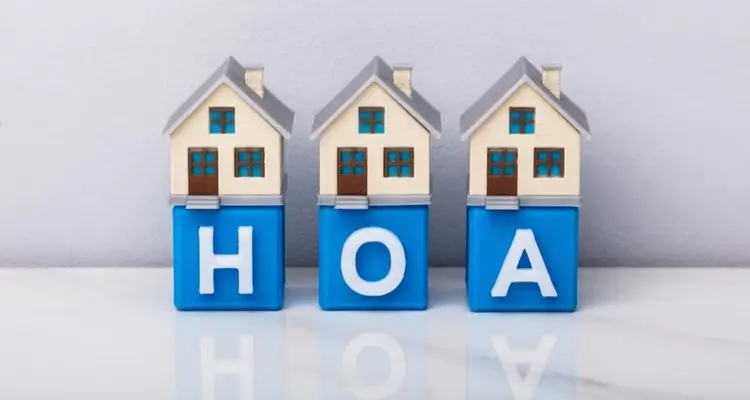
Refinancing to a lower interest rate on your mortgage could save you thousands of dollars over the life of your loan.
But, when you refinance a loan there are several things to take into consideration.
So we wanted to know from the experts what tips they have for homeowners who are looking to refinance their home loan and here’s their advice.
Rate Search: Check Today’s Mortgage Rates
Be Careful when Extending your Mortgage Payments
Madison Smith, Editor, Best Company
“If you are a homeowner striving to save money on your mortgage do not fall into the trap of refinancing your loan simply to extend the loan timeline. In essence, if you are five years into your 30 year loan, don’t refinance for yet another 30 year loan. That extra five years of interest adds up to an expensive total that could be avoided. Besides, do you really want to pay off your house for 35 years? I didn’t think so.”
“Some people are mesmerized by the lower monthly rates that can be obtained through a refinanced loan extension, but the longer you are making monthly payments the more you are going to be paying in interest. Don’t be swayed by the low monthly rate when you inquire for a loan extension. Your added interest payments will likely make home ownership a more expensive refinancing process rather than a money saving one.”
Make a Quick Decision and Go for it
Chane Steiner, CEO, Crediful.com
“If you’re at a point where you have your ducks in a row – good credit score, low interest rates available, and some money on hand – then don’t wait on refinancing. Either commit to it or call it off, because if you wait you’ll likely miss the best rates. They’ve been on an upward tick lately and while they aren’t going to skyrocket overnight, they aren’t going to get better the longer you wait.”
“Of course you should take the time to look at companies and do your research, but don’t let indecision be your decision. Finally, if you are going to refinance, don’t just do it for a lower interest rate. Do it for a shorter term. If you have a lower rate, but a longer term, you’re not really going to save the kind of money you’re hoping for. If you can shorten the loan term, you’ll save in the long run.”
Make sure Your Credit is Up to Par
Gladice Gong, Finance Blogger, Earn More Live Freely
“Your credit score plays a vital role in the interest rate you will receive on a home loan. If you have some credit issues work on increasing your score before applying. This is important because your credit score has a direct impact on whether you will be able to secure refinancing for your mortgage and also whether you will get a better interest rate.”
A quick way many consumers can increase their credit score in a hurry is by paying down credit card balances. Your credit utilization ratio is the amount of available credit you are currently using, and it makes up 30% of your overall FICO score. The lower your credit card balances, the lower your score will be. Pay down your credit card debt to maximize your scores before applying to refinance your loan.
Double your Savings Potential by Refinancing to a Shorter Term
Andrew Latham, Managing Editor, supermoney.com
“If you can afford it, refinance to a shorter term. Your monthly payments will increase a little, but the savings over the life of the loan will be worth it.”
“For example, if you refinance a $200K mortgage with a 30-year term and a 5% interest rate for a mortgage with the same term and a 4% interest rate, you’ll save around $13,768 in interest (assuming 3% of the refinance balance in closing costs). However, if you refinance to a 15-year term with the same interest rate, your monthly payments will increase by around $400, but you will save $27,667 in interest over the life of the loan.”
Determine Your Break Even Point
John Dustman, SVP of Consumer Direct Lending, Axos
“If you’re refinancing to lower your monthly payment, think break-even! Dividing the total cost of the new mortgage by the monthly savings will give you a break-even figure in relation to months it will take for the savings to pay for the cost.
If the number of months it will take to recoup the cost is several years or longer than you plan to stay in the home, then the refinance is not a smart decision for you.”
Do the Math to Figure out the best move for your Financial Health
Michael Outar, Founder, Savebly.com
“Many people choose to refinance their mortgage for a lower interest rate or lower monthly payment, which is great but you have to know what you are trying to achieve from refinancing your mortgage.
So, you need to get some quotes from lenders and start crunching the numbers. There are many mortgage calculators online that will do the calculations for you, you just need to supply the data.
You will begin to see that there are times where your monthly payment might be lower but you are paying more interest over the term of the loan or your loan term is shorter but the monthly payments are through the roof.”
Get a Loan Estimate from at Least 3 Lenders
Randall Yates, CEO, The Lenders Network
“Don’t make the mistake many home owners make of refinancing with your current lender, or the first lender you speak to.
Interest rates and lender fees will widely vary when it comes to refinancing so getting a loan quote from at least 3 lenders.
When you apply to refinance your mortgage the lender has 3 days to get you a loan estimate with a breakdown of all the costs.
Use the loan estimates to help you negotiate the best rate and lowest closing costs possible.”
Make Sure Your Still Come out ahead after all Refinance Costs
Brian Davis, Co-Founder, SparkRental.com
“Run the numbers to make sure they’re actually coming out ahead. Unfortunately, usually refinancing serves the lender’s interests, not the borrower’s.
Calculate the remaining life-of-loan interest on your current loan. You can do this with any number of free mortgage calculators online, that show a full amortization table with each year’s interest payments.
Then, calculate the total costs – including all closing costs and total life-of-loan interest – on the proposed refinance loan. Compare the two, and you probably won’t like what you find.
Keep in mind that loan officers always downplay closing costs in a refinance, and try to sweep it under the rug by saying they’ll just roll them into the loan. That doesn’t make them any less real. Quite the opposite: you end up having to pay interest on them!”
Randall Yates, is the founder and CEO of The Lenders Network, an online mortgage marketplace that helps homebuyers find reputable mortgage lenders. As a part of Randall’s successful entrepreneurial career, he spends a chunk of time helping consumers understand their credit and lending his mortgage expertise to help them find the right type of loan. Randall Yates lives in Dallas, Texas with his two sons.



